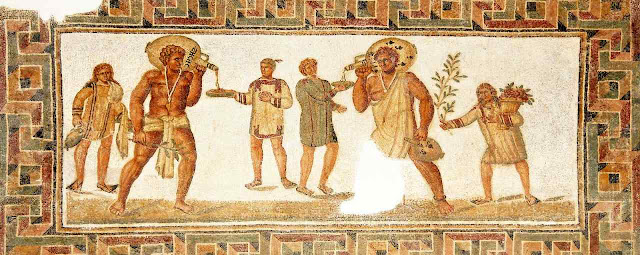Slavery was recognised as a part of ius gentium since it was practised and recognised by many peoples other than the Romans, but it was not considered part of ius naturale since men were free by nature.
- The Slave: person or thing?
Slaves (servi or mancipia) were owned by their masters and did not possess either private or public rights. Their masters possessed absolute rights over them. The slave was a res (a thing), and yet a person. As a res his master owned him and could sell him; as a person he was subject to the criminal law and could gain his freedom.
- Freeborn and freemade persons
It is important to note the following distinction: a man who was not enslaved was either ingenuus (freeborn) or libertinus (freemade). The ingenuus was born of free parents, the libertinus had been manumitted from enslavement.
- Note
+ Large numbers of slaves were brought to Rome as a result of Roman conquests. Their conditions were often very bad, usually much worse in the country than in the towns; a slave might be punished by being sent into the country. Slaves were often subjected to harsh and cruel treatment at the whims of their masters.
+ The actio liberalis causa (action for liberty) could be brought to decide whether, in fact, a person was free or enslaved.
----------
- Slavery in Roman Law
+ Slavery (II): Legal status of the slave
+ Slavery (III): Causes of enslavement
+ Slavery (IV): Protection of the slave
+ Slavery (V): Termination of enslavement
+ Slavery (VI): Quasi-servility
----------
Source:
Roman Law, L. B. Curzon, pages 55 - 57.
